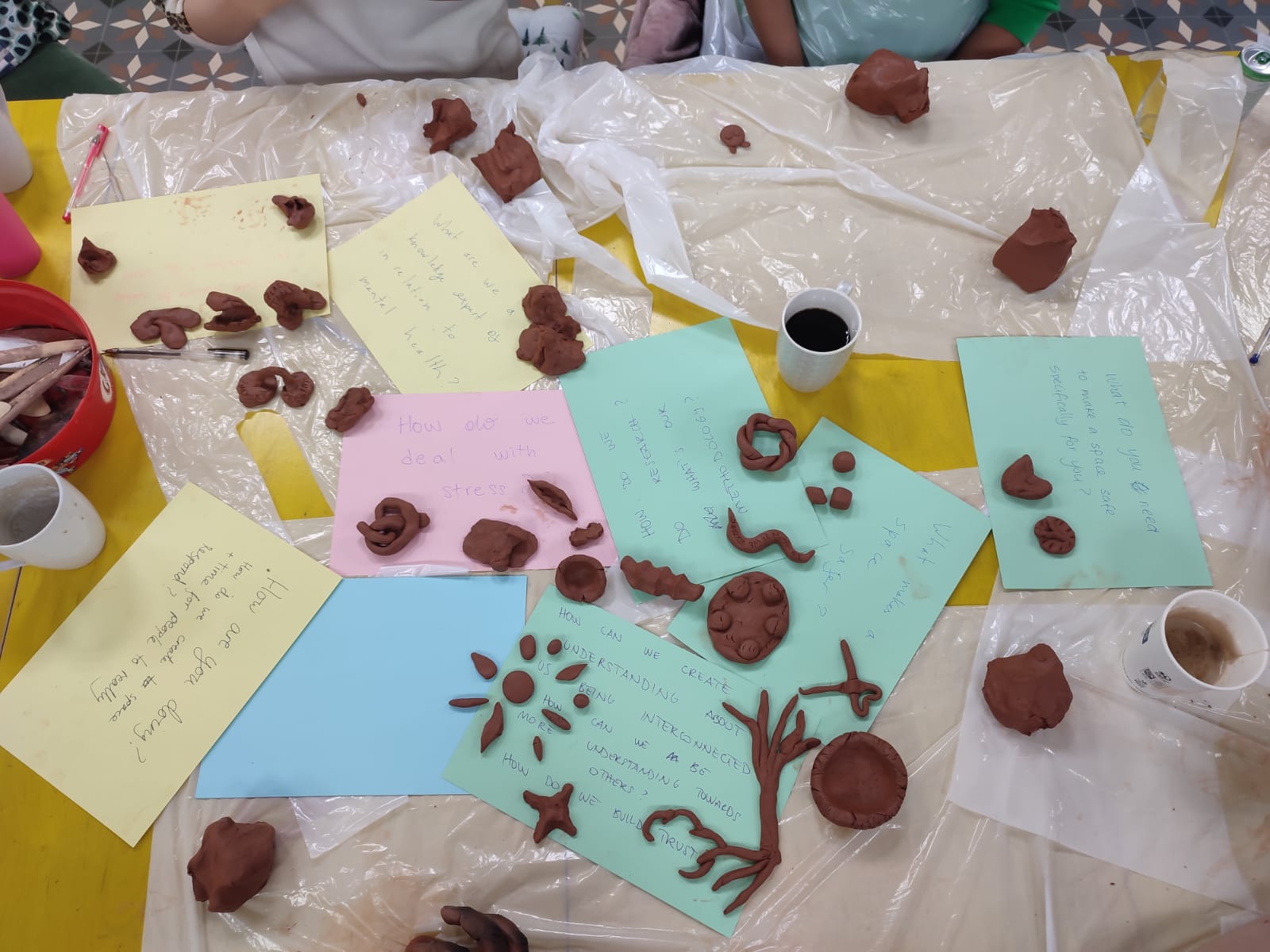Workshop 2: Generating Questions

What makes us feel safe?
The second workshop began with a check-in to say a few words about how we are feeling and what makes us feel safe, before having a conversation about how to create emotional safety as a group when working in mental health research.
Ideas included:
- no lone working,
- collective understanding of difference,
- being aware of our own triggers,
- reframing judgment into curiosity,
- avoiding diagnosing people,
- creating comfort,
- time and resources
- having the possibility to exit, rest and return.
Editing our transcripts
Everyone received a transcript of their own words (from Workshop 1) and was invited to annotate, black out sections, highlight and add to it.
People in the group expressed a desire to share their words; to help others and to further the development of knowledge. We decided that anything we wanted to share would be shared publicly – accessible to anyone who is interested. The reason for this is to avoid being detached from our data, to safeguard our vulnerability, and to maintain our own narrative so that the impact of the data gathered can be meaningful to us. Most wished to remain anonymous personally, but we all thought that it was important that this CWC working group should be credited as the collective author (see also our post on Data Sharing)
Areas of interest
We went on to generate the research questions/areas we are most interested in:
- How do we deal with stress?
- How can sharing be healing for ourselves and the world?
- What are we a knowledge expert of in relation to mental health?
- What is it that would make you safe to open up, what do you need?
- How do we do research, whats our methodology?
- How are you doing? (how do we create the time and space for people to really ask and really respond?)
- What makes a space safer?
- How can we create understanding about us being interconnected?
- How can we be more understanding of each other?
- How can we build trust?
We finished the workshop by creating clay representations of the tools we could use to research these questions. These included listening ears, and bridges for connecting across our differences.
These research questions will be discussed when we next meet and we will make plans to apply the methodology we have been developing.
A respite from and in spite of the world
We have created a space and way of being together which is a respite from and in spite of a world that doesn’t allow for these things. Standing outside of mainstream and oppressive structures and moving towards change, we are well-placed to bring radical challenges to accepted frameworks of understanding mental health and systems of data collection and usage.
Related Blog Posts:



